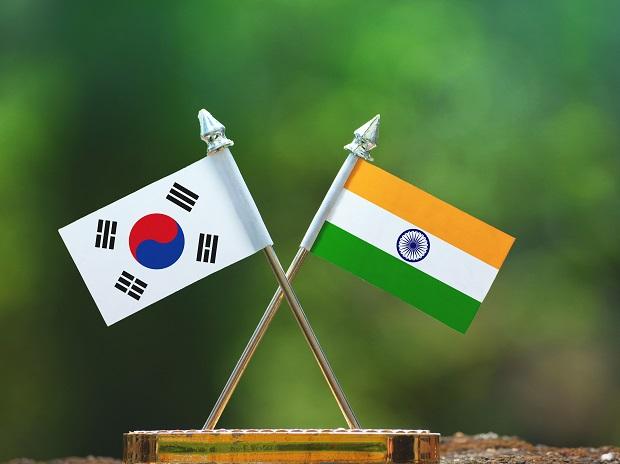Subscribe for our News

South Korean Prosperity Pillar: Economic Cooperation
South Korea is establishing additional levels of cooperation with Southeast Asia and India in socio-cultural, economic and political terms. These efforts are aimed at realizing the country's potential as a middle Power in the region and diversifying its strategic partnerships.
Under South Korean President Moon Jae-in, Seoul has undertaken its first unified diplomatic initiative aimed at advancing ties with India and the Association of Southeast Asian Nations (ASEAN). This initiative is known as the New Southern Policy (NSP). One of the NSP’s goals is to “elevate [South] Korea’s relations with ASEAN member states and India in the political, economic, social and cultural spheres, among others, to the same level [South] Korea maintains with the four major powers (the United States, China, Japan and Russia).”
The NSP is an extension of South Korea’s need to diversify its economic and strategic relationships amid the uncertainty posed by competition between its closest ally, the United States, and largest trading partner, China. By elevating ties with India and Southeast Asia, Seoul hopes to insulate itself from the risks posed by trade and strategic friction between the two great powers. Moreover, it hopes to improve ties with India and Southeast Asia commensurate with their growing economic and strategic importance.
The Moon administration should strive to evaluate the outcomes of the NSP in its final year in office. Although it is typically difficult to maintain continuity in foreign policy due to South Korean presidents’ limit to one five-year term, the geopolitical and economic imperatives driving the NSP will remain under a new administration in 2022. Given the staying power of these drivers and the continuously growing importance of India and Southeast Asia, South Korea’s next president will have every reason to keep emphasizing these regional partnerships as well.
Delineating how responsible the South Korean government is for any given trade and investment developments under the NSP is often difficult. Some initiatives, like trade agreements and development assistance, are directly reliant on the government. Others, however, are driven by the private sector, and in these cases the NSP and the government can only play a supporting role. The direct impact of the policy versus that of independent private businesses is difficult to parse. This is true even on some of the policy’s quantifiable goals, like the goal to increase total trade with ASEAN to $200 billion by 2020 (a goal that was ultimately not met, largely due to adverse global economic conditions in 2019 and the pandemic in 2020) and the goal of boosting trade with India to $50 billion by 2030.
Trade agreements have perhaps been the most visible positive outcome of the government’s economic efforts. South Korea has signed a new Comprehensive Economic Partnership Agreement (CEPA) with Indonesia, concluded negotiations for a free trade agreement (FTA) with Cambodia, began negotiations for FTAs with the Philippines and Malaysia, and is negotiating upgrades to its CEPA with India (despite many obstacles) and its FTA with ASEAN.
In addition to liberalizing tariffs under FTAs, the South Korean government has tried to build and support infrastructure projects to foster sectoral diversification in private sector–led partnerships and to assist South Korean SMEs looking to expand in Southeast Asia and India. To this end, the presidential committee has established two new business-related platforms: the Korea–South and Southeast Asia Business Coalition, a forum that convenes government officials and representatives from trade-related private associations and organizations working with NSP countries, and the ASEAN and India Business Desk at the Korea Trade-Investment Promotion Agency (KOTRA), an institution designed to help South Korean companies seek assistance in entering the markets of NSP partners.
The new Rainmaking Expand Korea programme (the partnership between government agency Enterprise Singapore (ESG) and global corporate innovation firm Rainmaking) was launched on November 2021 to give companies from Korea and Singapore access to government programmes and partnerships to expand and grow in South Korea.
This programme will complement earlier efforts like the K-Startup Centre in Singapore, launched by South Korea's Ministry of SMEs and Startups in July 2020 and supported by ESG. The centre was set up to help Singapore companies explore co-innovation opportunities with counterparts in South Korea and vice versa. Since its inception, K-Startup Centre has been tapped for 13 Korean startups to set up a presence in Singapore.
Links:
https://carnegieendowment.org/2021/10/19/south-korea-beyond-northeast-asia-how-seoul-is-deepening-ties-with-india-and-asean-pub-85572
https://www.straitstimes.com/business/new-programme-to-provide-opportunities-for-singapore-firms-to-set-up-and-grow-in-south
https://www.businesstimes.com.sg/garage/switch-2021/singapore-launches-market-access-programme-with-south-korea-for-bilateral

